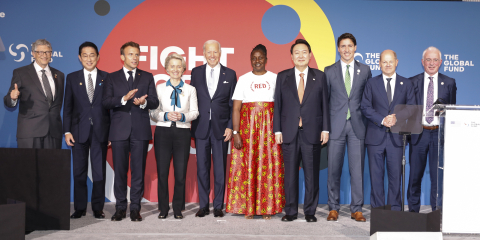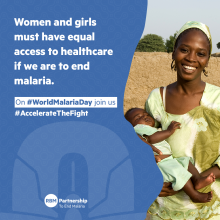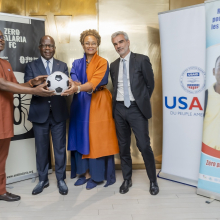Dear Partners,
This year’s Global Fund Replenishment Conference, hosted yesterday in New York by President Biden, raised US$ 14.25 billion to invest in malaria, HIV/AIDS and tuberculosis. Up to a third (30 - 32%) of the total raised will be invested in global malaria programmes.
The RBM Partnership to End Malaria commends and thanks all the private and public sector donors and governments from around the world, who demonstrated their commitment to saving lives from malaria, HIV/AIDS and tuberculosis, strengthening health systems and advancing global health to build a safer world for everyone.
However, the total pledged so far falls short of the Global Fund’s US$ 18bn target for its next three-year funding cycle. We now call on all those who have not yet pledged to step up and make a commitment before the pledging window closes.
Dr Corine Karema, Interim CEO of the RBM Partnership comments: “We commend the United States government for its leadership, and all the donors who have contributed to today’s replenishment – this money will help save thousands of lives from malaria.
“However, we are concerned that the total pledged today has not yet reached the target the Global Fund needs to contribute to get the malaria fight back on track. This funding is vital - not just to provide life-saving programmes for malaria, but to build health system resilience more generally and help protect us all from future pandemics.
We call on those governments, philanthropists, the private sector and endemic countries who haven’t yet pledged to step up and make a commitment. Just a short window remains for governments to step up - every dollar really does count to save lives. It is not too late for governments, especially those who have previously shown such leadership and commitment to global health, to take action. Malaria endemic countries around the world will be watching and waiting.”

Latest Blogs



